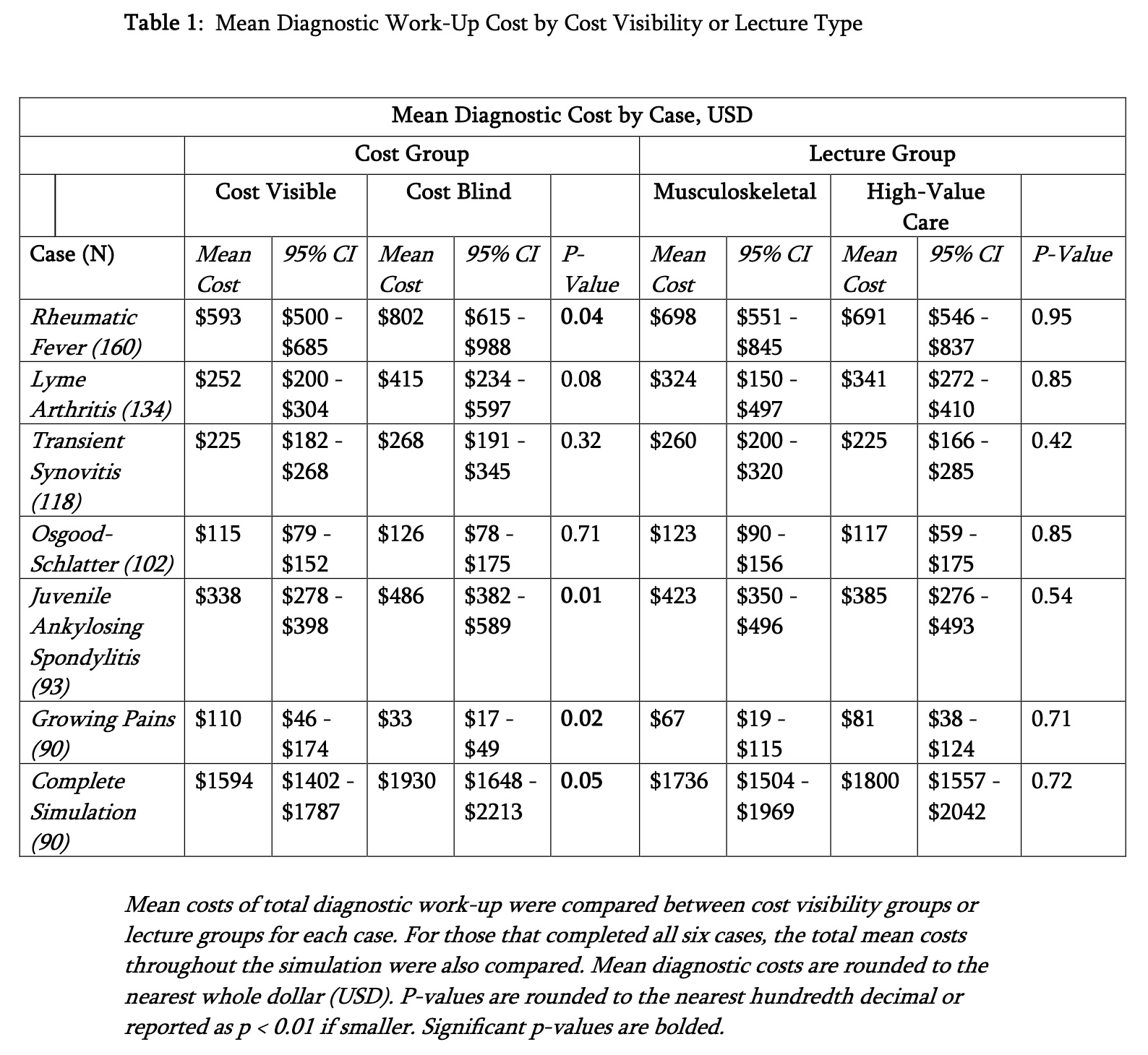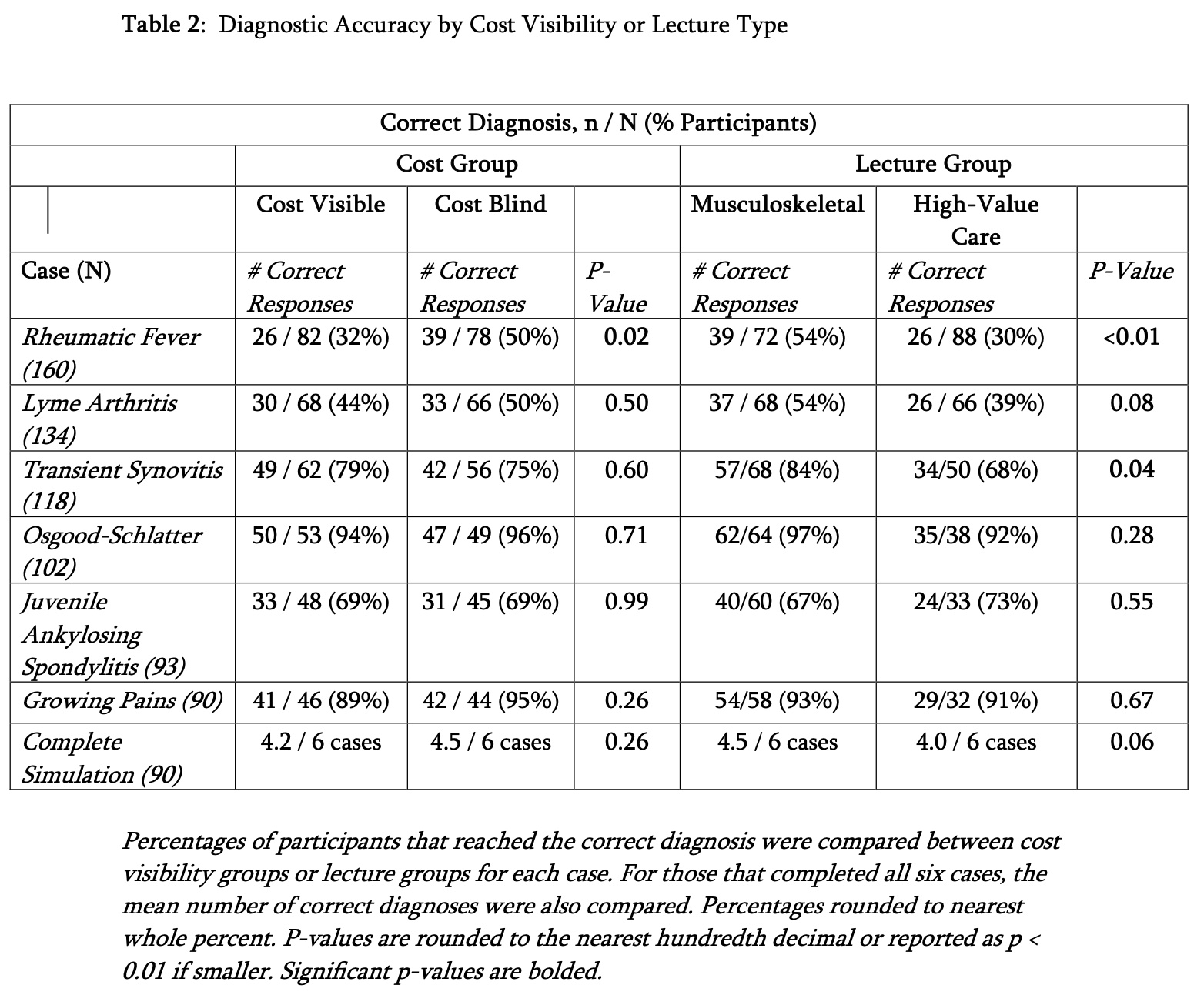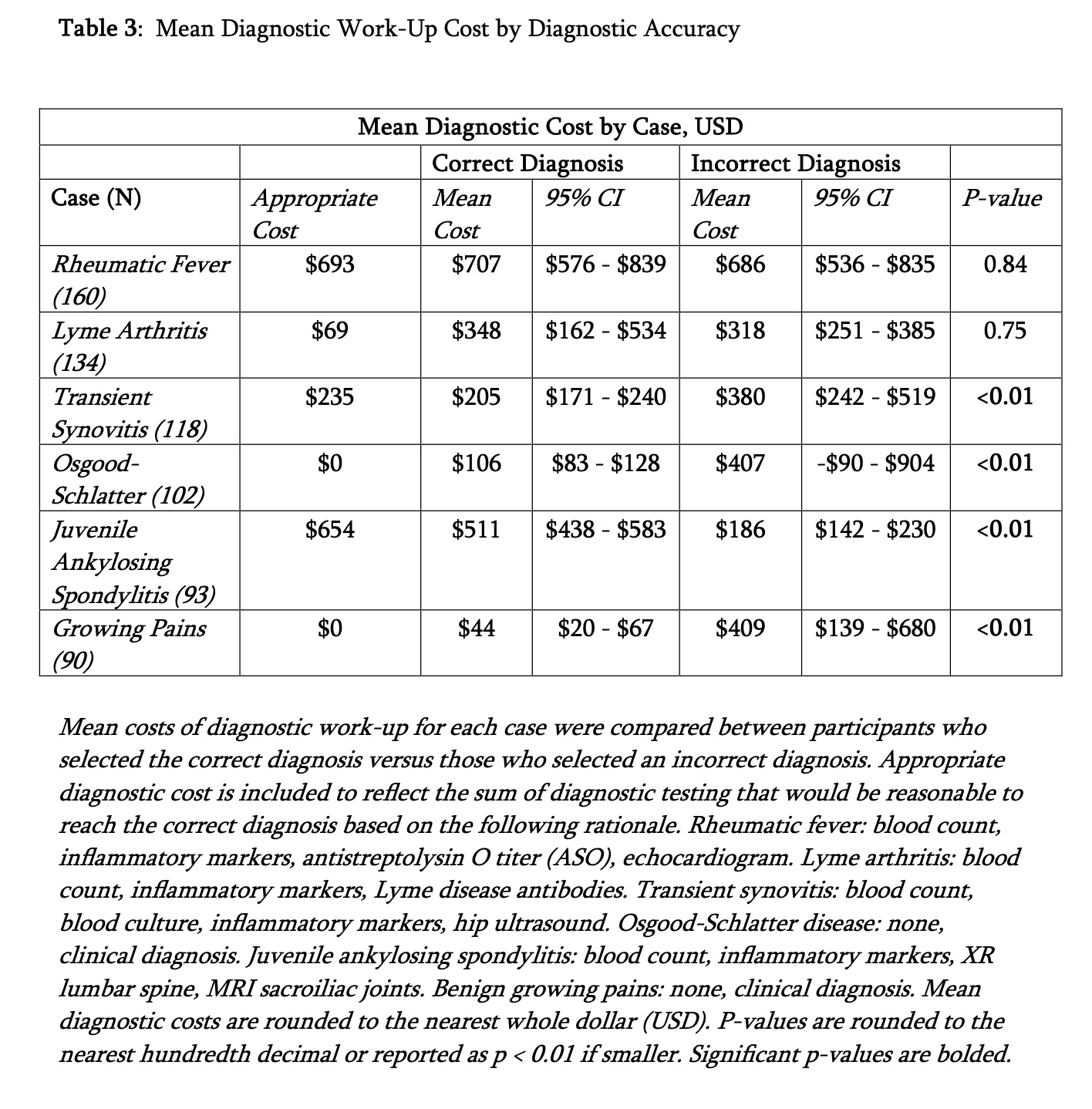Session Information
Session Type: Abstract Session
Session Time: 3:00PM-4:30PM
Background/Purpose: Excessive healthcare spending in the United States remains a growing concern, and teaching high-value care is essential to combat wasted costs. It is especially important that general pediatricians are educated in high-value diagnosis of musculoskeletal (MSK) complaints, as pediatric rheumatology is a small subspecialty. Our goal is to evaluate implementation of an online case-based simulation accompanied by lecture to teach pediatric trainees at multiple institutions about MSK complaints and high-value care.
Methods: We recruited pediatric residents and medical students from 4 institutions to participate in an optional 45-minute simulation. For the first 15 minutes, learners listened to a lecture on either pediatric MSK complaints or high-value care. Participants were then asked to complete an online simulation game on REDCap that presented six vignettes of pediatric MSK complaints and prompted them to select tests to make a diagnosis. Costs of diagnostic testing were visible for half of learners and not visible for the other half. After completing the six cases, participants responded to an optional survey assessing their perceptions of high-value care and the simulation. Mean cost of diagnostic evaluation, total cost of evaluation, diagnostic accuracy, and qualitative survey responses were compared using t-tests and Chi-squared tests.
Results: Of 236 participants that opened the simulation, 87 completed all six cases and the post-simulation survey (37%). Participants with visible costs spent $336 less in mean total cost of diagnostic evaluation for the six simulated cases than those who were cost-blind ($1594 versus $1930, p < 0.05). Cost-blind participants spent more on average in 2 of the 6 cases and less in 1 of the 6 cases, but cost-blind participants with greater spending had greater diagnostic accuracy in only one of those cases (rheumatic fever, p = 0.02). Reaching the correct diagnosis was associated with lower cost of diagnostic evaluation in 3 of 6 cases and greater cost in only 1 of 6 cases. An initial MSK lecture was associated with increased diagnostic accuracy for 2 of 6 cases (p < 0.01 for rheumatic fever, p = 0.04 for transient synovitis), but lecture type was not associated with mean total cost of work-up. Simulation feedback was generally positive, as 92% agreed (58/87) or strongly agreed (22/87) that this simulation was a more accurate representation of clinical practice than test questions. The majority (79%) responded that they would be more likely (59/87) or much more likely (10/87) to consider cost in their practice moving forward.
Conclusion: Using an online case-based simulation with traditional lecture can improve knowledge of pediatric MSK complaints and cost-conscious ordering practices. Moreover, this simulation can be effectively implemented across multiple institutions with positive reception from residents. Future iterations may consider shorter cases to encourage greater response rate and expansion to more generalized pediatric and adult topics.
To cite this abstract in AMA style:
Latif M, Driest K, Frank E, Stephans A, Tarvin S, Robinson A. Multi-Center Use of an Online Case-Based Simulation to Educate Pediatric Trainees on Musculoskeletal Complaints and High-Value Care [abstract]. Arthritis Rheumatol. 2024; 76 (suppl 9). https://acrabstracts.org/abstract/multi-center-use-of-an-online-case-based-simulation-to-educate-pediatric-trainees-on-musculoskeletal-complaints-and-high-value-care/. Accessed .« Back to ACR Convergence 2024
ACR Meeting Abstracts - https://acrabstracts.org/abstract/multi-center-use-of-an-online-case-based-simulation-to-educate-pediatric-trainees-on-musculoskeletal-complaints-and-high-value-care/



